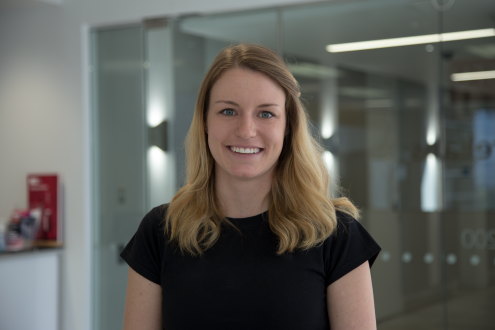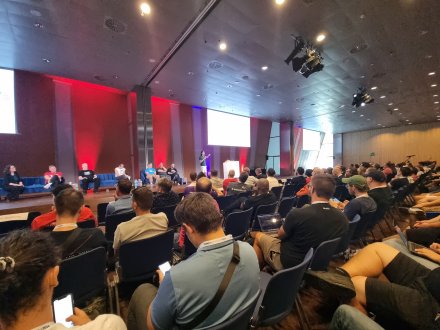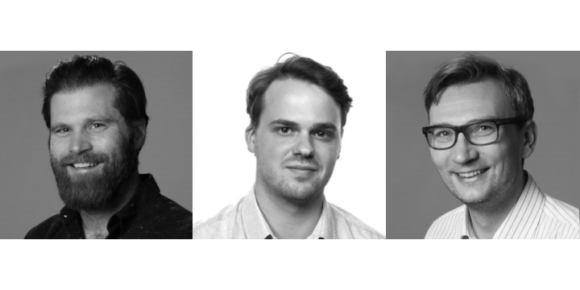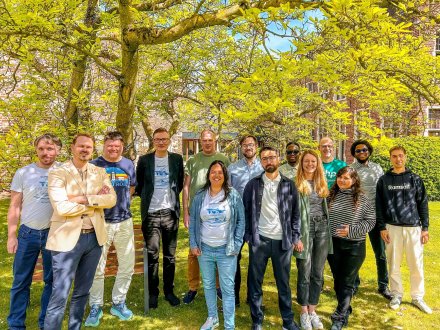How Ramsalt and artificial intelligence transformed “secret” public documents
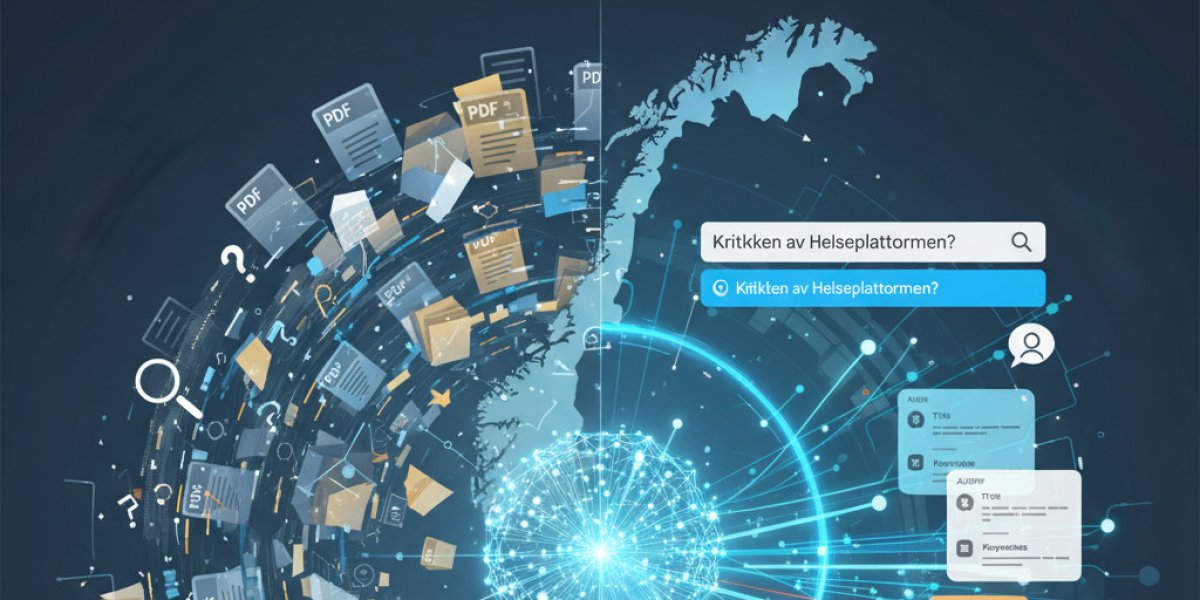
The public sector is overflowing with knowledge – from reports to evaluations. The challenge has long been to find this information in the sea of PDFs. Ramsalt Lab has been central to the development of Kudos – a national knowledge portal. By implementing groundbreaking AI-based document analysis, we have helped turn a chaotic document base into a goldmine of searchable insight.
The public sector produces enormous amounts of knowledge – reports, studies, evaluations and analyses. But where does all this knowledge go? Too often it ends up in digital drawers, hard to find and impossible to search.
This is the problem Kudos (Knowledge Documents in the Public Sector) solves.
Ramsalt have been a key technical partner in the development of this groundbreaking service for Directorate for Public Administration and Financial Management (DFØ). Our developer, Thomas Andre Karlsen, has been a key member of the team that built the technical engine that powers Kudos.
Ramsalt Lab is a digitalization partner with Directorate for Administration and Financial Management The contract has a value of up to 150 million NOK over a 10-year period and Kudos is one of several projects Ramsalt is doing for the directorate.
Kudos is a joint search solution that brings together knowledge and management documents from ministries, directorates and government agencies in one place. The service, which is a collaboration between DFØ and the National Library, aims to streamline the entire knowledge process – from production to sharing and reuse.
The Challenge: A Bunch of PDFs
Building a portal for tens of thousands of documents (at the time of writing, over 40 000!) is a big task in itself. But the real challenge lies not only in the volume.It is in the metadata.
Many of the documents that are retrieved (often via "scraping" of various public websites) lack basic information:
- Who actually wrote the report?
- Who was the client?
- What are the most important keywords?
- Can I get a good summary?
A document without good metadata is almost as bad as a lost document. This is where the magic – and Ramsalt’s contribution – comes in.
The solution: AI that cleans, analyzes and enriches
To solve the metadata tangle, Ramsalt's developer Thomas Andre Karlsen has been central to building an advancedAI-based document analysis tool inthe heart of Kudos.
This tool is not just a simple tagging function. Here's how it works:
- Analyse: When a new document is uploaded to Kudos, the first few pages are sent to an AI language model (such as GPT-4o and GPT-5).
- The model reads andunderstandsthe content. It identifies and extracts:
- A more descriptive and searchable title.
- The actual client (actor).
- The individual authors.
- Relevant keywords and topics to which the document can be linked.
- The AI is also writing a completely new, concisesummaryof the document.
The result is that documents that were previously black boxes suddenly become data-rich, perfectly indexed, and extremely easy to find for users. This saves countless hours of manual work and dramatically improves the quality of the entire database.
Ask questions about knowledge
Ramsalt's contributions don't stop there. The team has also experimented with implementing aLLM search engine, RAG pipeline.
This allows users to "talk" to the database. Instead of just searching for a word, one can ask a question like:"What is the criticism of the Health Platform?"
The system will then find the most relevant documents in the Kudos database, read them, and then generate a fact-based answer for the user, complete with source references. This is a completely new way to extract precise information from a massive knowledge base.
A gold mine for the state, researchers and journalists
Like the newspaper Media 24 has pointed out, Kudos is a gold mine for anyone who needs to know what the state knows.
Public employees can easily find relevant knowledge from other organizations and avoid ordering reports that already exist. Researchers gain access to a huge dataset for their analyses. Journalists can use the service to uncover connections and dig into public administration.
At Ramsalt, we pride ourselves on delivering technology that has real societal value. The Kudos project is a prime example of how we use our expertise in Drupal, data mining, and artificial intelligence to build robust and intelligent solutions for the public sector.
Does your business have large amounts of data that are difficult to utilize? Do you need help structuring, enriching and making your information accessible? Contact us at Ramsalt for a chat about how we can use AI and smart search solutions to transform your data into valuable knowledge.
Latest news
Ramsalt’s Client Resource Manager, Nina Holzapfel, will speak at DrupalCon 2025 about how to manage scope creep and keep projects on track. With years of experience leading Drupal projects and keeping clients happy, she shares practical insights for teams who want smoother delivery and stronger results. In this interview, Nina explains why this topic matters and what attendees can expect from her session.

DrupalCon Vienna 2025 is almost here. Ramsalt Labs is ready to join the global Drupal community to share insights, contribute, and connect. This event is a chance for us to strengthen Drupal, learn from peers, and meet face to face with clients, partners, and colleagues.

Ramsalt Lab, one of Northern Europe’s leading web development agencies, is pleased to announce a new phase of growth with strategic changes to its leadership team.
Ramsalt is a people-first, remote-first agency built on Scandinavian values of openness, responsibility, and trust. We work with mission-driven clients — from NGOs to universities and publishers — and care about clean code, real collaboration, and a sustainable way of working.



